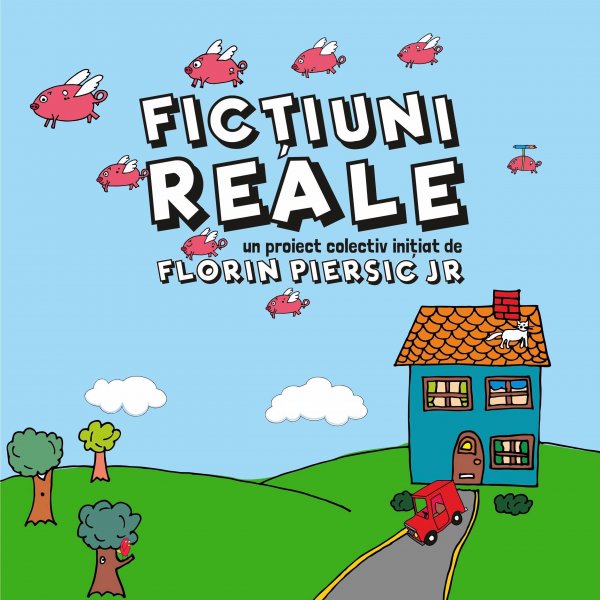Ina Moldoveanu
I can't forget when the orphan children would hide pieces of bread wherever they could, and at night, when they went to bed, or during the afternoons of siesta, they would take them out and lay them on their pillows, stroked them for a long time, talked to them, and then started nibbling on them slowly, as if to keep them from ending, or from being discovered by the caretakers, the harsh guards of a prison of innocent souls. And when they were handed it, they would sniff it for a long time, kiss it, and fight the urge to savour it or hide it for the time being.
Andrei Lămureanu
Give, Lord, Your body to man[1], he muttered, rummaging in the dumpster. He had been a driver, became a cripple, then he got a job as a security guard in a furniture factory. They went bankrupt and he started doing day labour wherever he could. Now he was old and worn out and nobody wanted him anymore. He made do with what was left over from others. God is great, he said with a lump in his throat. He held out the dry bread to the grey dog, who was happily rubbing against his leg: the Lord has taken, the Lord has given[2]. He unwrapped a newspaper, tore the bread in two and clasped his hands in thanksgiving.
Ioana Epure
It's made of ingredients like wyd, gr8, nb, ppl, lmao, the last one is an adaptation of the Dacia 1300 generation's toasts, which, among other things, invented the computer and machine code, don't gurgle, you won't understand any of those anyway. It's all well and good, new generations are born, and they grow up without the sourdough, whatever that is. They are better than us, not only because they know how to look for what interests them better, but also because they don't obey in the same way. In fact, in any way. Don't tell me, the net's down again.
(Translated by Corina-Alexandra Belu / University of Bucharest, Faculty of Foreign Languages and Literatures, MTTLC, year I / Corrected by Silvia Petrescu, coordinator of the translations)
Real Fiction is a collective project started in 2013 by Florin Piersic Jr. The concept of Real Fiction continued to exist as a Facebook group, after a volume of stories was published at Humanitas Publishing House. (In April 2024, the group has 12,860 members.) The authors write ultra-short stories, with the texts limited to 500 characters (in Romanian, so the length of the English translation might be a little different) - a flash-fiction exercise on a topic that changes every few days. The group's coordinators are Florin Piersic Jr., Gabriel Molnar, Răzvan Penescu, Luchian Abel, and Vlad Mușat. (Drawing by Adrian T. Roman)
Versiunea în română a acestui text se poate citi aici, în rubrica Ficțiuni Reale.
0 comentarii
Arhiva rubricii
Mommy and Daddy, Teodora Vamvu, Varinia Mitrea, Titela Durnea, translated by Andreea-Nicoleta BanMommy and Daddy, Dan Banu, Cosmin Dominte, Laura Stanciu, translated by Andreea-Nicoleta BanMommy and Daddy, Horațiu Dudău, Monica Aldea, Răzvan Dițescu, translated by Andreea-Nicoleta BanMommy and Daddy, Iulia Biró, Monica Ciurea, Caterina Tudorache, translated by Andreea-Nicoleta BanMommy and Daddy, Silvia Ștefan, Diana Cornea, Gheorghiță Mircea, translated by Andreea-Nicoleta BanToate articolele din această rubricăPublicitate
